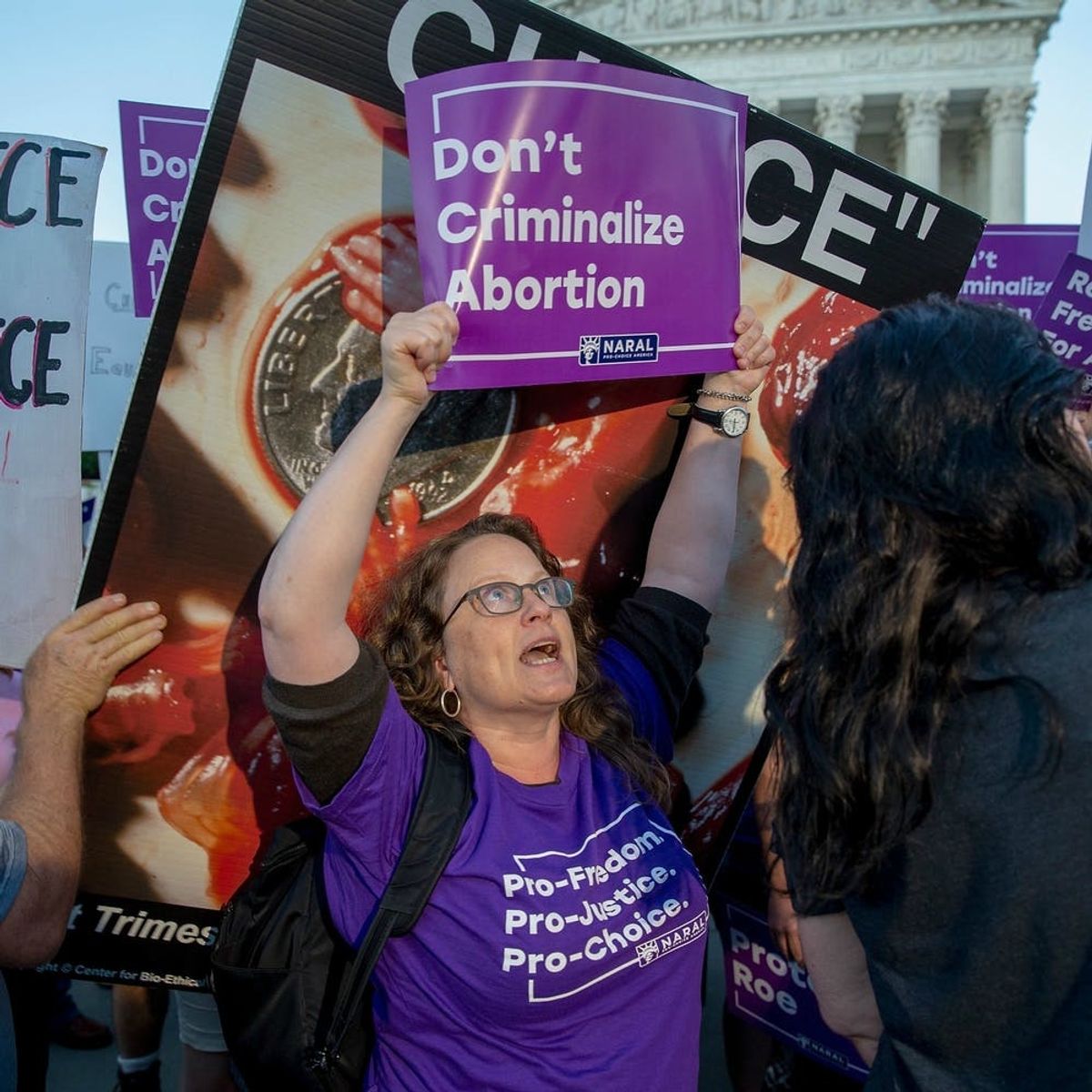This is the strictest anti-choice ruling in the country.
Ohio’s New Anti-Abortion Bill May Trigger a Supreme Court Battle — Which Is Just What Legislators Want

Ohio’s Republican-held state House passed a bill Thursday saying that abortions can’t be performed after a fetal heartbeat is potentially detectable — medically speaking, six weeks — in yet another attempt at removing a woman’s right to choose in the state.
As anti-choice legislators continue to try to push through what could potentially become the strictest abortion ban in the country, it’s likely at least some among them are hoping that the bill will trigger a Supreme Court battle now that the odds are stacked in their favor.

Ohio’s “heartbeat bill” (H.B. 258) essentially makes it a fifth-degree felony for a doctor to perform an abortion “before determining whether there is a detectable fetal heartbeat.” The bill also prevents doctors from performing abortions unless they can prove that carrying to term or delivering the baby irrefutably threatens the patient’s life, or will create life-altering, non-reversible negative medical outcomes.
While there are exemptions for medical conditions in the bill, ThinkProgress investigated the claim that medical exemptions can help women in need of abortion. They found not only that abortions do not get covered by Medicaid, but also that the bar on what is considered viable proof for the exemptions (maternal health, rape, or incest) are so high that almost no patients can claim them.
But this isn’t the first time a bill like this has been tabled in Ohio.
In 2011, Ohio passed a law making abortions riskier and more costly by enacting a rule that forced medical practitioners to prescribe an outdated drug regimen that had serious complications and could cost women thousands of dollars in medical care. The law came after Ohio’s Right to Life chapter tried to have the first six-week-ban bill passed through legislature. Although the original six-week heartbeat bill passed in the state House, it never went to the state Senate.
When the bill was tabled again, just one year later, Governor John Kasich — although staunchly anti-abortion — worried that the bill would create too many legal issues and also ignored cases where incest or rape were a factor in the pregnancy. The bill eventually went to the Ohio House and failed in 2014.
During another attempt at the six-week heartbeat ban, Governor Kasich vetoed the bill while signing into law his own 20-week abortion ban — a law The Washington Post called “worse” than the heartbeat bill because of the legal implications to Roe v. Wade — setting a precedent that has helped pave the way for this year’s iteration and attempt at the six-week ban.
After Thursday’s 60-35 vote, the heartbeat bill is poised to be passed, though it still needs to clear the Senate by a veto-proof margin. But if it does, the bill may trigger a Supreme Court hearing, something that would be welcome for anti-abortion lawmakers. With historically anti-choice judge Brett Kavanaugh now sitting on the Supreme Court, this law could be upheld, paving the way for even more abortion restrictions across the country.
“Today’s passage of an abortion ban in the Ohio House of Representatives is part of a broader strategy by anti-abortion politicians to push abortion care out of reach state by state, and is unfortunately a harbinger of what’s to come once anti-abortion state legislatures gavel back into session in 2019,” deputy director at the ACLU’s Reproductive Freedom Project Brigitte Amiri said in a statement.
The statement continued: “This is also one of the first legislative attempts that takes direct aim at the constitutional right to abortion after the Supreme Court’s recent changes. The ACLU’s response if the Ohio bill becomes law? We’ll see you in court.”
(Photo by Tasos Katopodis/Getty Images)



















